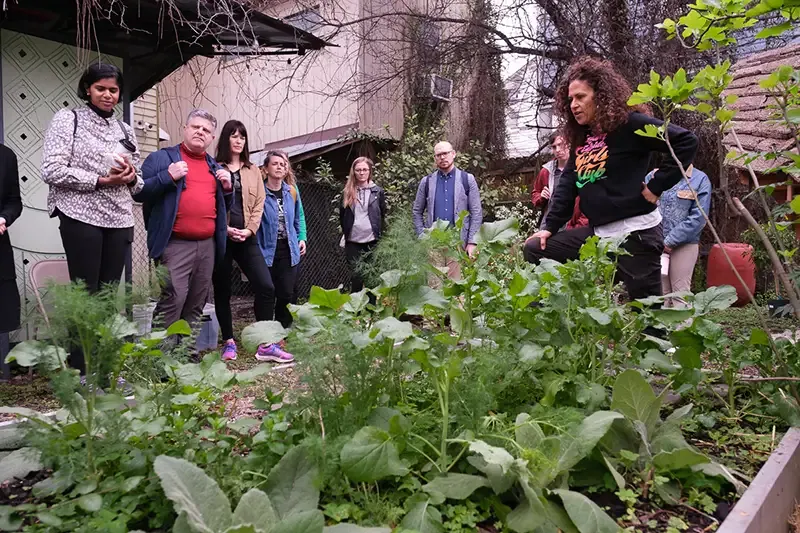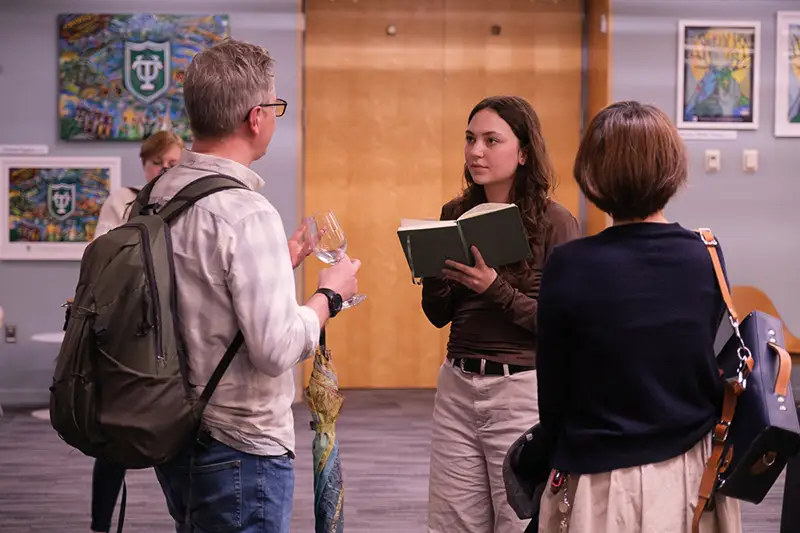
Carlyle Calhoun, host of the podcast Sea Change from WWNO, remarks that “there is no such thing as a simple environmental story.” This concept is one of my main takeaways from the Gulf Coast Connections Conference, hosted by the New Orleans Center for the Gulf South, Tulane School of Liberal Arts Environmental Studies Program, and the Tulane Center for Public Service, in collaboration with Rice University’s Center for Environmental Studies. Just as there is no such thing as a simple environmental story, there is no such thing as a simple anything when it comes to climate change.
I attended this conference with few expectations but assumed that it was going to cover environmental issues that the Gulf South faces, such as sea level rise, land loss, and oil exploration. However, it was rather an interdisciplinary look into environmental thinking in general, pulling work from journalists, activists, and scientists alike.
I heard voices from individuals like Daniel Freiss, an Environmental and Earth Sciences Professor in Tulane’s School of Science and Engineering, who discussed the concept of allocating carbon credits to protect mangrove ecosystems, and multimedia storyteller Luisa Dantas, who explores the role of narrative in social justice organizing. All of the presenters brought important questions regarding climate change in some shape or form to the surface: Freiss pondered the question, “can we use ecosystem services to incentivize conservation?” Rice University students Jadyn Bray-Boyce and Siena Yiin, creators of Gulf Streams Podcast, asked “how can I best present information on environmentalism and climate change in a way that is engaging and digestible?”
A common thread that ran through the conference was the need to include citizen stakeholders in all environmental projects, engaging the community at the ground level. Freiss discussed the effectiveness of socializing and creating community-based projects for mangrove restoration endeavors and Simone Domingue with the ByWater Institute at Tulane University underscored how real change starts with listening and elevating communities. Dantas similarly emphasized the need to “center co-creation and power sharing” in environmental narratives.
For centuries, we have created boxes to define and divide the world: humans vs. the natural world, hard sciences vs. soft sciences. But these boxes are limiting our ability to comprehend the breadth of the environmental problems that we face. Rather than simplifying our lives, they are constraining our knowledge and each other. When people think about climate they think about science: GIS mapping, carbon sequestration, and technical solutions to curb global warming. While these are all noteworthy and necessary areas of study, environmental thinking is about more than just science; it is about history, sociology, literature, unjust power dynamics, and most of all, it is about people. It is about how people interact with the natural world, how certain communities are unfairly exposed to harmful waste and toxins, and how people cooperate (or don’t) to find solutions and tackle environmental problems.
Dr. Ochoa, Chair and Professor of the Department of Music at Tulane, presented her work on sound ecology, revealing the different types of relationships that Indigenous Peoples have with the natural environment that include senses often overlooked in Western environmental understandings. In her presentation, Dr. Ochoa emphasized the need to push historical interdisciplinary boundaries and recognize that knowledge should not be constrained to the traditional “academy.”
Similarly, in my Climate Change & Indigenous Peoples class, we have discussed the analogy of the “hatchet” and “seed” in political ecology that seeks to dismantle harmful environmental narratives and begin to plant the seeds of a new, more inclusive ecology that encompasses more voices and perspectives.
There is no simple solution to climate change — and many will continue to perpetuate the unfair power dynamics that got us to this point to begin with. If the conference revealed anything in its conclusion, it is that we must continue to find creative ways to reach the masses, uplift those voices that have been silenced for so long, and learn to work alongside one another.

Lucie Jain is a part of the Tulane University Class of 2026, majoring in Environmental Studies and Political Science/International Development. She is an active member of the Alpha Phi Omega National Service Fraternity and the professional environmental fraternity Epsilon Eta. Originally from Portland, Oregon, her interests largely focus on environmental topics and she hopes to pursue a career in environmental law, politics, or journalism.

